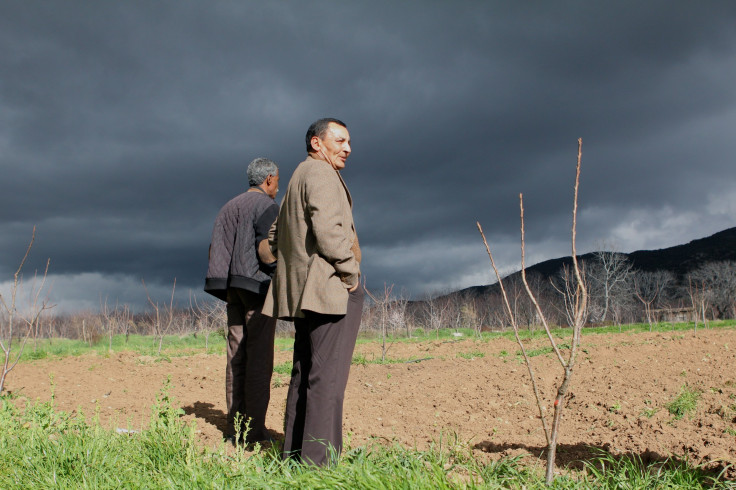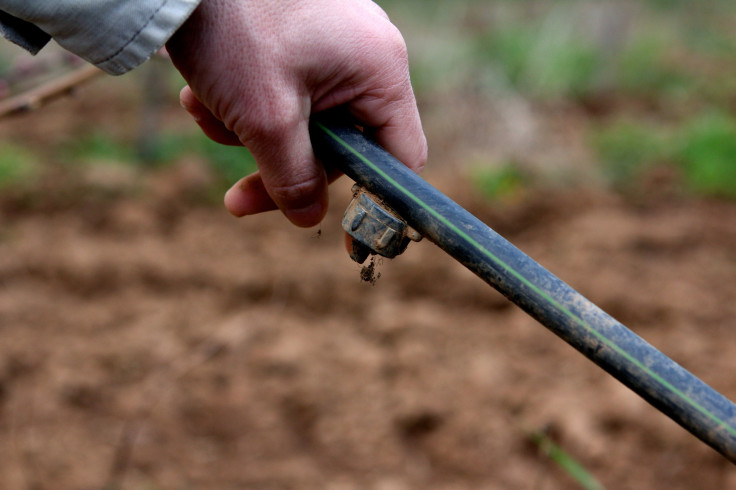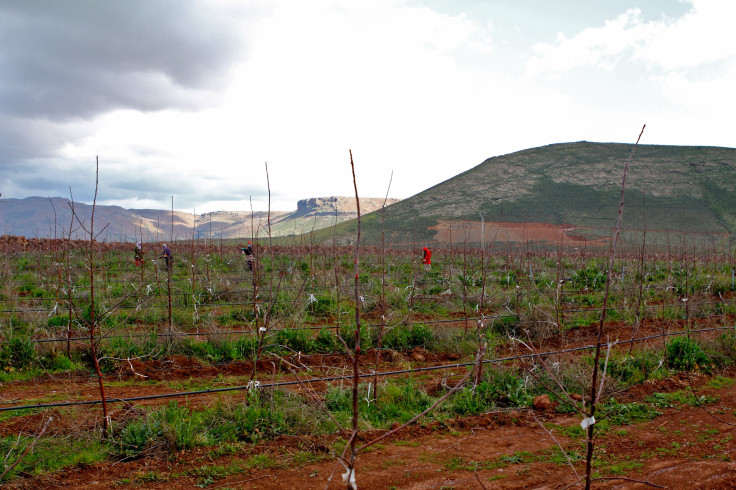Moroccan Government Overhauls Decades Old Agriculture Policies – But At What Cost?

A few times a week, Mimoun Boutarrite makes the drive from Meknes to Ain Leuh, in Morocco’s Ifrane provice. The drive takes him through the Atlas moutains and lush green fields that now support colorful fruit trees on land that was once empty or filled with wheat fields.
An electrical engineer by trade, he’s now retired and spends much of his time checking in on hundreds of cherry trees.
Boutarrite is the founder and president of the Anarouz Association, a co-op for local cherry farmers that started in 2010.

Walking through rows of young cherry trees, he explains that he grew up on a farm, but he now only has the time to get back to his roots -- the government subsidies don’t hurt either.
In recent years, the Moroccan government has been overhauling the country’s agriculture system through massive subsidies.
The "Green Morocco Plan" was initiated in 2010. Farmers are paid to clear land and plant fruit trees on land that was either empty or used for growing wheat, a crop that requires more water and makes less money.
It seems simple enough, but Morocco is under pressure from international organizations to cut its current spending amid dwindling reserves and the need to attract foreign investment.
The Green Morocco plan targets two types of operations. The first target is state intervention for smaller farms by forming co-ops, financing equipment and switching to high-value fruits that grow more efficiently in Morocco to produce "modernization with a social impact," for 840,000 farmers at a price of $2.5 billion.
A second initiative targets large-scale projects and subsidizing equipment upgrades. For example, a new watering system called "gout-a-gout" (drop-by-drop) that distributes water more efficiently. The government set aside $9 billion for the project, which will cover up to 80 percent of costs for more modern farms.

For decades Moroccan agriculture reflected policies reminiscent of French influence from as far back as the 1920s. But the current minister is changing the focus from wheat to fruits, which grow better in the region.
“It’s better for Moroccan farmers to grow fruit like apples, peaches, plums, pears and cherries rather than wheat,” said Laila Louddi, an engineer from the Moroccan Chamber of Agriculture.
“It’s more efficient because the yield for cereal crops like wheat is very low, and requires more water.”

For example, in 2012 Morocco produced 3,878,000 metric tons of wheat, and just 1,315,794 metric tons of olives, but the olives are more than three times as valuable, according to the U.N. Food and Agriculture Association.
Government statistics show that cereals occupy roughly 75 percent of all farmland but account for just 10–15 percent of sales and less than 10 percent of all jobs.
This is what the government hopes to change. But it isn’t so simple.
"On the one hand, it makes a lot of sense to incentivize farmers to grow crops that require less water," said Matthew Spivack, practice leader for the MENA region at Frontier Strategy Group.
"In the past, subsidies spent on the local population make them feel like they benefit," he said.
But it also increases the country's dependence on wheat imports. Government reserves are at a 10-year low, and could likely cover just a few months' worth if local crops fail.
Like many North African countries, food, energy and other products are heavily subsidized by the Moroccan government.
Major subsidies were one of many moves made by the Moroccan government that help maintain order and unrest in a post-Arab Spring society. Most countries in North Africa provide large subsidies at great expense. While larger oil-producing countries can handle the strain for a short time, it's still a very unsustainable practice.
"They've done it to maintain stability but they're not well-positioned to keep it up," Spivack said.
The IMF and the World Bank have been putting pressure on Morocco to cut this kind of spending, as a condition for a $6 billion loan made in 2012. And in some ways, they're moving forward.
“Gasoline and fuel oil are no longer among the products subsidized by the government,” said the Ministry of General Affairs on Friday, according to MAP, the state news agency.
The move was scheduled to happen months ago, but officials fear unrest if anything happens too drastically.
Thousands of rural families depend on these programs, and Boutarrite isn’t the only one whose life has changed because of this intervention.
© Copyright IBTimes 2024. All rights reserved.












